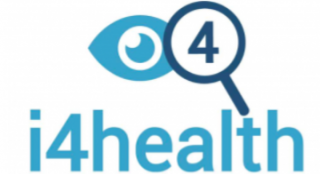Siemens-EPSRC funded PhD Studentship at UCL: Attenuation Estimation of MRI hardware in high resolution PET-MRI

UCL has a close collaboration with Siemens Healthineers. As part of this collaboration, Siemens is co-funding a PhD studentship, jointly with the UCL i4health Centre for Doctoral Training (CDT). The funding covers an annual stipend and tuition fees at the rate for UK/EU nationals for 4 years.
Project
Positron Emission Tomography - Magnetic Resonance Imaging (PET-MRI) is a recently developed imaging technique that combines the metabolic and functional information from PET with the flexibility of MRI. Quantitative PET images are needed to guide patient diagnosis and treatment. To get accurate values, it is essential to know the location and density of any objects through which the PET gamma photons travel, including the MRI receiver coils close to the body. However, these coils are not usually seen in the MRI images and the challenge is to estimate their location and their attenuation of PET photons. This problem is becoming more highly relevant for PET-MRI systems that have improved time-of-flight and spatial resolution for PET.
The primary aim of this project is to improve PET quantification by developing and evaluating PET attenuation correction methods that account for MRI hardware that is not visible in standard acquisition protocols or has uncertain location. Methods to be investigated include advanced PET image reconstruction methods that incorporate estimation of attenuation, advanced MRI sequences, MRI coil sensitivity estimates, shape and deformation modelling of flexible body coils, optical cameras to monitor location. The intention is to develop methods that are clinically practical and robust, and can be used with a range of available PET tracers. The method will build on previous work completed at UCL related to attenuation estimation for the head and lung, using advanced inverse problem techniques and deep learning.
The project will be mostly related to method development but will include some experiments using either phantoms or patient volunteers.
This project is a collaboration between the Institute of Nuclear Medicine (INM), the Centre for Medical Imaging, and Siemens Healthineers. The student will be part of the i4health CDT and benefit from a wide range of activities and opportunities.
- Location and Supervision
The student will be located at the UCL Bloomsbury Campus or at the nearby INM in the University College Hospital. Imaging facilities include PET-MRI and PET-CT scanners. The supervisory team will include Prof Kris Thielemans and Prof David Atkinson (UCL) and Dr Paul Schleyer (Siemens).
- Requirements and Eligibility
Funding is only available for Home/EU students with standard research council restrictions. Note that EU students are normally only eligible for a full studentship if they have lived, worked or studied within the UK for 3 years prior to the funding commencing, although this might be relaxed for exceptional candidates. More information can be found on the EPSRC website.
Candidates must meet the UCL graduate entry requirements which include holding at least an upper second class degree or equivalent qualifications in a relevant subject area such as physics, biomedical engineering, computer science or applied mathematics. A Master’s degree in a relevant discipline and additional research experience would be an advantage. Depending on experience the student will be entered into either a 1 year MRes+3 year PhD programme, or a 4 year PhD.
- Funding
The funding covers an increased annual stipend (around £19,000) and tuition fees at the rate for UK/EU nationals only. Funding is available to cover travel, conferences and consumables.
- Application
Informal enquiries and applications should be sent directly to Prof Kris Thielemans by email to k.thielemans@ucl.ac.uk with subject-line “PET/MR PhD application” and include a Curriculum Vitae (CV) and a cover letter. This should set out your previous academic or other experience relevant to the proposed research; why you wish to undertake this research at UCL; your previous research or professional training and what further training you think you will need to complete a PhD; and what ethical issues you will need to consider in undertaking this research. In addition, two references should be named at the end of the statement. At least one reference must be from an academic referee who is in a position to comment on the standard of your academic work and suitability for postgraduate level study. Where appropriate, a second referee can provide comment on your professional experience.
The closing date for application is 30 November 2020. Interviewing will be in December. We hope to have the student start as soon as possible but there is some flexibility.
University College London (UCL)
UCL is ranked highly in the world in World University Rankings and publications from UCL have the highest number of citations outside the US. UCL hosts one of the largest and most productive centres for biomedical science in Europe. Staff and students enjoy a wide range of facilities including on-line access to most journals and an active program of interdisciplinary seminars.
A wide variety of lectures and seminars are available to PhD students at UCL. Of particular note are the MRes lectures organised by the i4health Centre for Doctoral Training.
Further Information:
UCL Institute of Nuclear Medicine
UCL Centre for Medical Imaging
EPSRC Centre for Doctoral Training in Intelligent, Integrated Imaging In Healthcare (i4health)
 Close
Close

